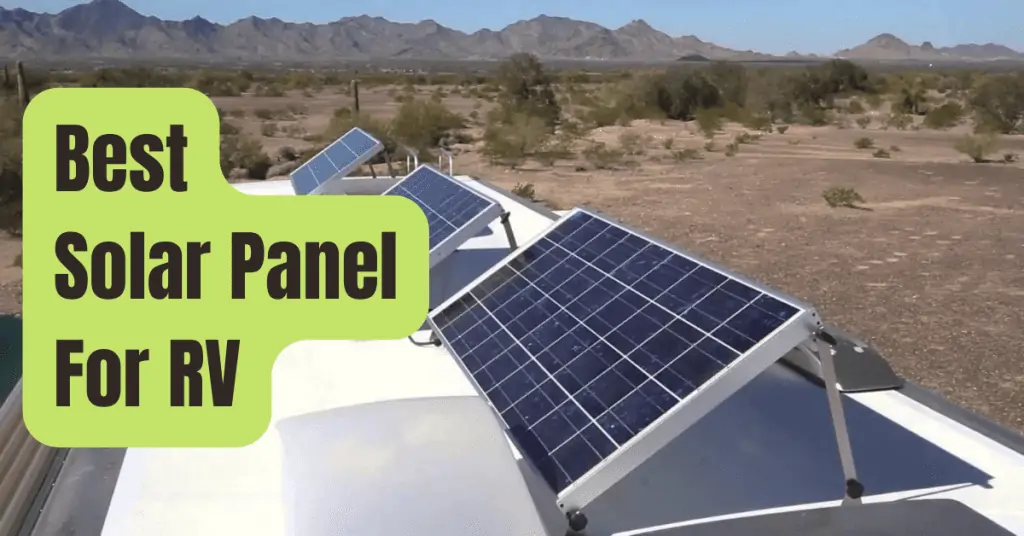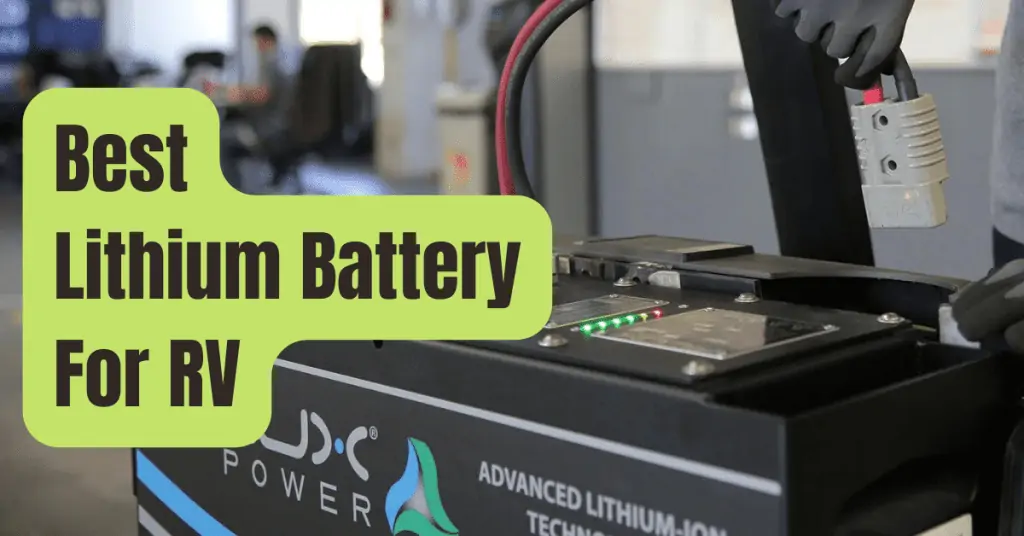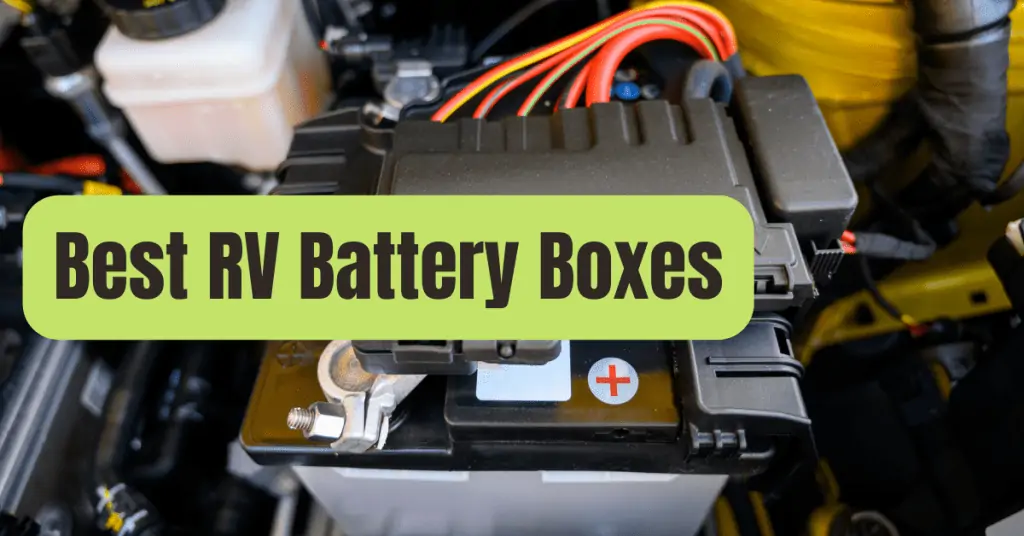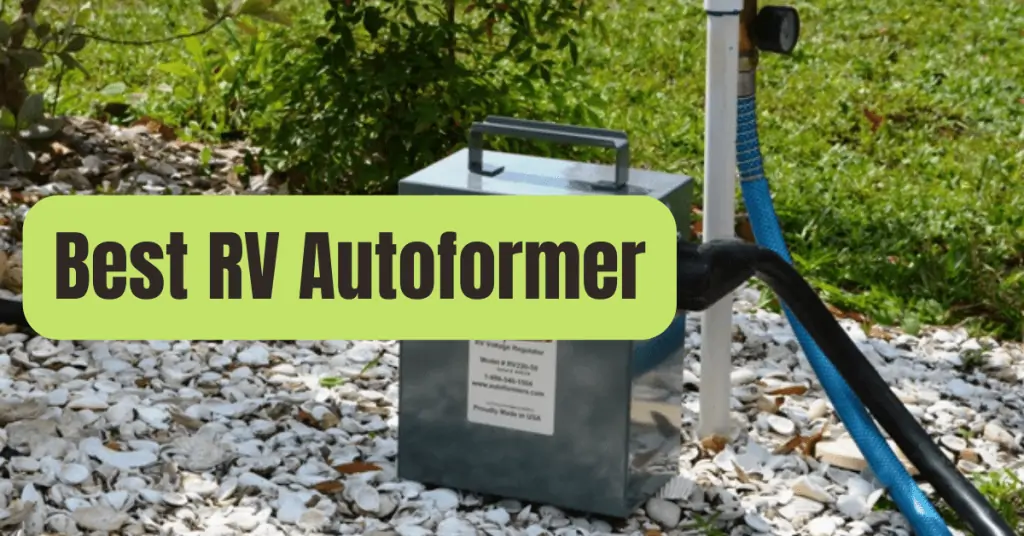Your RV fridge must maintain the proper temperature for your perishables until you are plugged back in, whether you are engaged in lengthy dry camping or are just traveling between campgrounds.
Some people believe that using an inverter to power an RV fridge is the solution, but is it?
You may use an inverter to keep your refrigerator operating while you aren’t plugged in if you want to save gas.
This is an excellent alternative for modern RVs that have residential refrigerators that only operate on AC power in addition to saving fuel.
Among all the items in a typical RV, the fridge is perhaps the most crucial to maintain in working order.
We will now examine the benefits and drawbacks of using an inverter to power an RV fridge.
Additionally, we’ll assist you in identifying the precise power requirements for your refrigerator and give you some advice on how to choose an inverter that will suit your needs and work with your recreational vehicle.
Then let’s get going!
Can You Use An Inverter To Run An RV Fridge While Moving?
When you are not plugged in, most RV freezers need propane to operate.
This is really a wonderful alternative for dry camping or boondocking since it uses very little DC energy for the electronics and interior lighting.
To prevent using too much electricity when unplugged, you may nonetheless operate an RV refrigerator on an inverter.
Therefore, it makes sense to consider this alternative for long periods of time while off-grid camping or for individuals who need to preserve propane for other uses.
The good news is that many contemporary RVs come with inverters already installed.
Additionally, if propane is scarce, your fridge’s circuitry may already be programmed to switch to the inverter’s power supply.
However, you must make sure that the inverter you purchase is compatible with your fridge, other appliances, and RV batteries if your RV doesn’t already have one.
An RV Inverter: What Is It?
An RV inverter converts direct current (DC) to alternating current in the most basic terms (AC).
Although many of your equipment, including certain refrigerators, need AC energy, your RV battery stores and provides DC electricity.
In other words, when you aren’t plugged in at an RV park, an inverter will enable your refrigerator (and other AC equipment) to work off the electricity in your RV batteries.
The inverter must be hardwired into your RV’s current electrical system in order for this to work.
Which Kind of RV Fridge Do You Own?
Two-way and three-way refrigerators are the two main varieties of RV refrigerators.
RV refrigerators with two power inputs are available (usually propane or AC power).
Three kinds of electricity may be used with three-way refrigerators (AC, DC, and propane).
Additionally, there are standard RV refrigerators and RV refrigerators designed for domestic use.
How many watts your inverter has to be qualified for depends on the kind of generator you have in your vehicle.
So let’s go through some of the advantages and disadvantages of household and conventional RV refrigerators.
Refrigerators for Homes
The greater capacity of domestic refrigerators is their major advantage.
They are much bigger than a typical RV fridge and often perform better at maintaining the proper temperature.
Additionally, these refrigerators typically exclusively use AC power, eliminating the possibility of a propane flame.
On the other hand, these refrigerators often need for a pure sine wave inverter.
Additionally, they demand that the inverter run continuously to power the refrigerator.
You may incur some power loss due to the inefficiency of inverters, and you will likely need to augment the capacity of your current batteries with more batteries and/or solar panels for more effective recharging.
Standard Refrigerators for RVs
You have greater versatility with standard RV freezers since you can power them with liquid propane gas, DC electricity, or AC power.
As a consequence, by alternating between power sources, they enable you to lower your energy use.
However, under severe cold, extreme hot, and humid situations, these freezers are not even close to as efficient as domestic refrigerators.
They also don’t maintain temperature as effectively as residential-style RV refrigerators and take longer to cool down once the door is opened.
How Much Power Is Needed for Your RV Fridge?
This will depend on the size of your RV refrigerator, as you would expect.
For instance, an inverter rated for 1,500 watts of continuous power and 3,000 watts of surge power is needed to run a 16 cubic foot refrigerator.
What Distinguishes “Continuous” And “Surge” Power?
The majority of appliances consume more energy at initial starting than they do when in use.
Surge watts or surge power are often used terms to describe the wattage needed to start an equipment.
Continuous power, sometimes referred to as “running watts,” is the wattage needed to keep an appliance operating after it has been turned on.
How to Use an Inverter to Power an RV Fridge
Here are the easy procedures you must follow to install an inverter to your electrical system if you are determined to use one to power the refrigerator in your RV.
Step 1: Find the Power Ratings for Your Fridge
You should start by becoming familiar with the power requirements for the particular refrigerator in your system.
These ratings are often shown on the label inside your refrigerator.
The surge and operating wattages for your unit may be found in your RV owner’s handbook if you can’t locate them there.
So that you may utilize them in your search for a suitable inverter, write both of these wattages down.
Step 2: Select A Converter For Your RV.
The next step is to choose an inverter with the capacity to power your refrigerator.
You will want an inverter that can meet the demand, say, 3,000 surge watts for your refrigerator.
To ensure that you don’t overload your inverter when your refrigerator starts up, it’s also a good idea to leave yourself some wiggle space.
For instance, if your refrigerator has a 3,000 surge watt rating, you would want to seek for an inverter with a minimum 3,500 watt rating.
You will also need to choose from a few different kinds of RV inverters.
Pure sine wave inverters, modified sine wave inverters, and square wave inverters are the three primary varieties.
Generally speaking, a pure sine wave inverter is needed for the majority of RV freezers that solely use AC power.
Modified sine wave inverters and square wave inverters can both power standard refrigerators, however they are both much less effective than pure sine wave inverters.
To find out more about selecting the ideal model for your RV’s energy requirements, see our post on the top 10 RV power inverters.
Step 3: Connect Your Inverter to Your Electrical System Directly
Our top recommendation for this stage is to work with a certified RV electrician.
The electrical system of your RV may be hazardous to meddle with if you don’t know what you’re doing, so you could consider looking for a mobile RV technician in your region as an alternative.
The inverter will essentially be mounted between your batteries and your refrigerator.
The inverter will be fed power from the battery and change it from direct current (DC) to alternating current (AC) (AC).
The inverter will then be hooked into your refrigerator to provide it with the necessary AC electricity.
Although it seems straightforward, if you lack expertise, it might be simple to do this wrong.
So once again, I urge you to consider hiring a specialist, even if it’s only to help you.
These days, not even the greatest YouTube tutorials can replace getting guidance in person from a qualified specialist.
Step 4: System Testing
You must turn on your refrigerator and switch it to the AC option after your inverter has been hardwired into your system (if applicable).
After it has cooled down for a while, check to make sure it is still working correctly.
Step 5: Issues With Using an Inverter to Run an RV Fridge
Although it is undoubtedly feasible, there may be some drawbacks to using an inverter to power your RV’s refrigerator.
Let’s briefly go through these so you are informed.
#1. A Battery Pack
Battery storage is one of the main problems with using an inverter to power an RV refrigerator.
The majority of RV refrigerators use a significant amount of electricity.
Therefore, using your home battery to power them runs the danger of draining it to the point where your other essential appliances will stop working.
Of course, adding a second battery will increase the overall power storage capacity of your RV.
To prevent overcharging their batteries, many people who are interested in boondocking or dry camping also recharge them every day using solar panels.
#2. Type of Fridge
Residential-style refrigerators are now being installed by manufacturers in some of the RVs that are bigger and more advanced.
While these refrigerators undoubtedly provide more convenience and storage capacity than a typical RV refrigerator, some of them will only operate on AC power.
Your inverter will, of course, convert DC to AC, so it isn’t necessarily an issue.
However, bigger refrigerators have greater wattage ratings and are much more likely to exhaust the stored energy in your RV batteries if you go too long between plugging in at campsites, especially if they are operating on AC 100% of the time.
#3. Installation of an Inverter
You should hire a qualified electrician with expertise working with RVs if your RV does not already have an inverter.
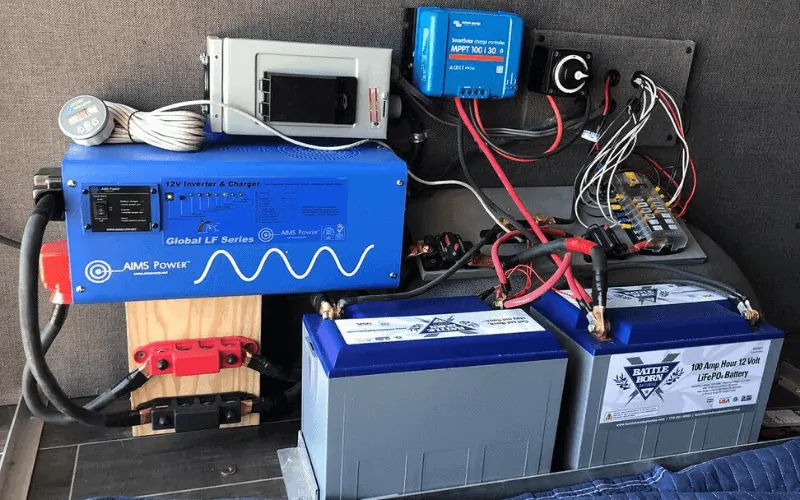
A new inverter must be hard-wired into your current electrical system, so you must take a few crucial safety measures.
The expense of hiring an expert may exceed what you are now willing to pay.
However, it will assist you in preventing damage to the electrical system of your RV, current equipment, or, in the worst case situation, yourself.
Alternatives to Using an Inverter to Run an RV Fridge
You may use your generator to operate your RV fridge if it doesn’t already have one and you don’t want to go through the hassle of installing one.
For many RV owners, this is a short-term fix for powering their refrigerator and other heavy equipment.
However, it is mostly used for a few of hours each morning and evening.
It is, in essence, a means to reduce the quantity of liquid propane your RV refrigerator uses if you are traveling for a longer period of time or dry camping.
That said, this still leaves open the issue of what to do if you own a household refrigerator that exclusively uses AC power.
Some people maintain that using your generator while your RV is moving is risky, even though this is the main scenario in which an AC-only fridge would need electricity from an inverter or a generator.
Others, however, disagree and contend that using a generator while your RV is moving is safe.
From personal experience, we used to use the microwave constantly while traveling to reheat lunch or tea.
The fortunate thing about household freezers is that they maintain cold well, thus as far as we are aware, our equipment never had any negative consequences.
It may be sufficient to keep the contents chilled until you arrive at your next campsite and plug back in, for example, if you run your generator twice for 30-minute stints over the course of a three-hour travel.
Conclusion
The majority of RV freezers have the nice feature of being built to function on a variety of power sources.
RV fridges are far more adaptable than your home’s refrigerator, which is often rendered utterly useless during power outages.
However, we recommend against tampering excessively with your RV’s built-in electrical systems.
When you are just attempting to increase the functioning of your refrigerator, you run the danger of causing worse problems unless you have lots of expertise and technical know-how.
As usual, we hope you found this post helpful and that some of the tips we provided helped you improve your knowledge about RVing.
Please share your forthcoming vacation plans in the comments section below.


